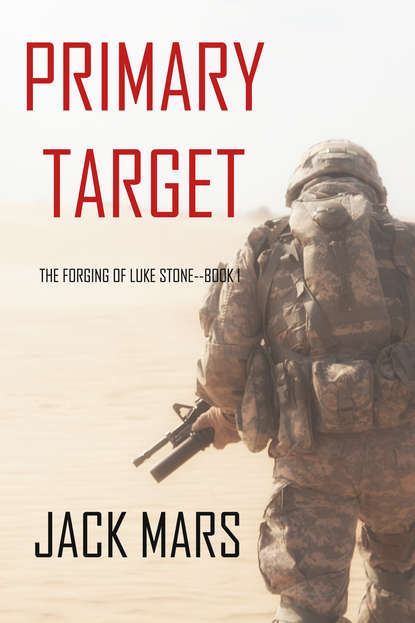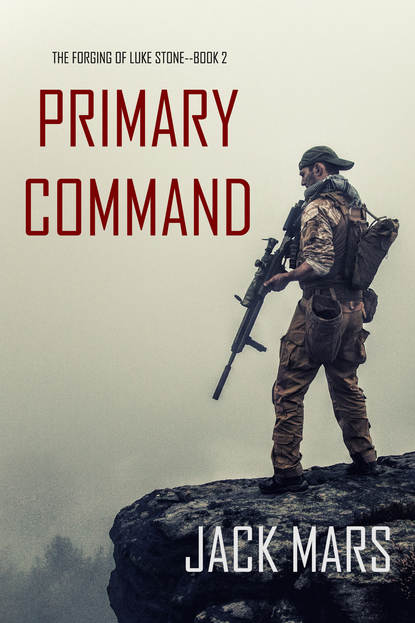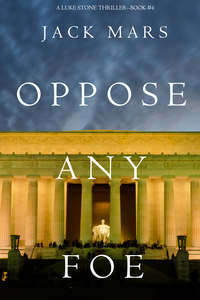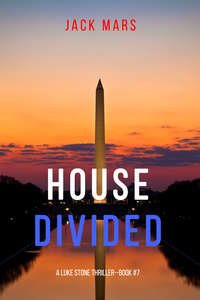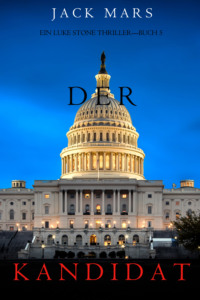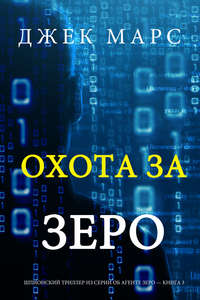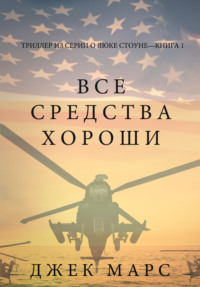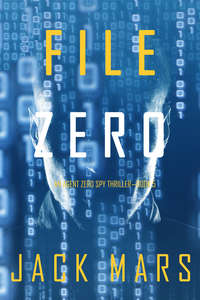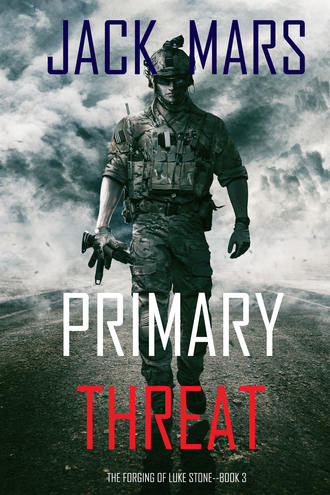
Полная версия
Primary Threat
Stark paused and stared at Dixon.
Dixon made a hand motion like a wheel spinning.
“I got it. Please continue.”
Stark nodded. “A little over thirty minutes ago, a group of heavily armed, unidentified men attacked the platform and the encampment. They arrived by boat, on a vessel made to appear as a personnel tender bringing workers to the island. An unknown number of workers have been killed or taken hostage. Preliminary reports, gleaned from video and audio feeds, suggest that the invaders are of foreign, but still unknown, origin.”
“What suggests this?” Dixon said.
Stark shrugged. “They don’t seem to be speaking English. Although we have no clear audio yet, our language experts believe they are speaking an eastern European, likely a Slavic, language.”
Dixon sighed. “Russian?”
The day he took over this thankless job, indeed moments after he took the Oath of Office, he had unilaterally stood American forces down from a confrontation with the Russians. The Russians had done him a favor and responded in kind. And Dixon had then been subjected to merciless and scathing criticism from the warmongering quarters of American society. If the Russians turned around and attacked now…
Stark shook his head the slightest amount. “Not sure yet, but we think not.”
“That narrows it down,” Thomas Hayes said.
“Do we have any idea what they want?” Dixon said.
Now Stark shook his head completely. “They haven’t contacted us, and refuse to answer our attempts at contact. We have flown over the complex with helicopter gunships, but except for a few fires, the place currently seems deserted. The terrorists, and the prisoners, are either inside the rig itself, or inside complex buildings, away from our prying eyes.”
He paused.
“I imagine you want to go in with force and take the rig back,” Dixon said.
Stark shook his head again. “Unfortunately, no. As much as we are one hundred percent certain we can take back the facility through sheer force, doing so will put the lives of any men being held prisoner at risk. Also, the facility is of a sensitive nature, and if we make a large-scale counterattack, we risk calling attention to it.”
A few people in the room began murmuring together.
“Order,” Stark said, without raising his voice. “Order, please.”
“Okay,” Dixon said. “I’ll bite. What’s sensitive about it?”
Stark looked at a bespectacled man sitting halfway down the table from the President. The man was probably in his late thirties, but he carried some extra weight that made him look almost like an angelic child. The man’s face was serious. Heck, he was in a meeting with the President of the United States.
“Mr. President, I’m Dr. Fagen of the Department of the Interior.”
“Okay, Dr. Fagen,” Dixon said. “Just give it to me.”
“Mr. President, the Frobisher platform, although owned by Innovate Natural Resources, is a joint venture between Innovate, ExxonMobil, ConocoPhillips, and the United States Bureau of Land Management. We have extended them a license to do what is known as horizontal drilling.”
On the screen, the image changed. It showed an animated drawing of an oil platform. As Dixon watched, a drill extended downward from the platform, below the surface of the ocean, and into the sea floor. Once underground, the drill changed direction, making a ninety-degree turn and now moving horizontally beneath the bedrock. After a time, it encountered a black puddle beneath the ground, and oil from the puddle began to flow sideways from the drillhead into the pipe following behind it.
“Instead of drilling vertically, which is how the vast majority of drilling was done in the twentieth century, we are now mastering the science of horizontal drilling. What this means is that an oil platform can be many miles from an oil deposit, perhaps a deposit in an environmentally sensitive location…”
Dixon held up a hand. The hand meant STOP.
Dr. Fagen knew what the hand meant without having to ask. Instantly, he stopped speaking.
“Dr. Fagen, are you telling me that the Martin Frobisher, out at sea six miles north of the Arctic National Wildlife Refuge, is in fact drilling inside the Wildlife Refuge?”
Fagen was staring down at the conference table. His body language alone told Clement Dixon all he needed to know.
“Sir, with the newest technologies, oil platforms can exploit important underground deposits without endangering sensitive flora or fauna, which I know you have previously expressed your concern…”
Dixon rolled his eyes and threw his hands up in the air.
“Aw, hell.”
He looked at the general.
“Sir,” Stark said. “The decision to grant that license was made two administrations ago. It was just a matter of perfecting the technology. Granted, it’s controversial. Granted, neither you nor I may agree with it. But I believe that’s a fish to fry at another time. At this moment, we have a terrorist operation underway, with an unknown number of American civilians already dead, and even more American lives at risk. Time is of the essence. And as much as is possible, I think we need to keep this incident, and the nature of that facility, out of the public eye. At least for now. Later, after we rescue our people and the smoke clears, there will be plenty of time for debate.”
Dixon hated that Stark was right. He hated these…
…compromises.
“What do you suggest?” he said.
Stark nodded. On the screen, the image changed and showed a graphic of what appeared to be a group of cartoon scuba divers swimming toward an island.
“We strongly suggest a covert group of highly trained special operators, Navy SEALs, infiltrate the facility, discover the nature of the terrorists and their numbers, decapitate their leadership, and, if at all possible, take back the rig with as little loss of civilian life as circumstances will allow.”
“How many and how soon?” Dixon said.
Stark nodded again. “Sixteen, perhaps twenty. Tonight, within the next several hours, before first light.”
“The men are ready?” Dixon said.
“Yes, sir.”
Dixon shook his head. It was a slippery slope when you were President. That’s what he, despite all his years of experience, had never understood. All his fiery stump speeches, his podium thumping, his demands for a fairer, cleaner world… for what? Everything had been sold down the river before you even started.
The Arctic National Wildlife Refuge was off limits to drilling. From the surface. So they parked themselves at sea and drilled from beneath it. Of course they did. They were like termites, always biting, gnawing, and turning the sturdiest construction into a house of cards.
And then the men doing the drilling were attacked and held hostage. And as President, what were you supposed to say—“Let them eat cake”?
Not a chance. They were Americans, and on some hard-to-understand level, they were innocents. Just doing my job, ma’am.
Dixon looked at Thomas Hayes. Of all the men in this room, Hayes would be the closest to his own thoughts on this. Hayes would probably be feeling boxed in, betrayed, frustrated, and flabbergasted, just like Clement Dixon.
“Thomas?” Dixon said. “Thoughts?”
Hayes didn’t even hesitate. “I understand it’s a discussion for another time, but I’m shocked to hear that we’re drilling in a natural environment that needs to be cherished and protected. I’m shocked, but not surprised, and that’s the worst part.”
He paused. “After these men are rescued, and as you say the smoke clears, I think we need to revisit the moratorium on drilling, and make it crystal clear that no drilling means no drilling, whether from the surface or from under the sea.
“Further, if there is going to be a military action here, I think we need to make sure there’s civilian oversight of the entire operation from beginning to end. No offense, General, but you guys at the Pentagon have a tendency to swing at mosquitoes with sledgehammers. I think we’ve heard about one too many wedding receptions in the Middle East being annihilated by drone strikes.”
General Stark looked like he was about to say something in reply, then stopped himself.
“Can you do that, General Stark?” Dixon said. “No matter how many military assets are involved, can you guarantee me civilian oversight and participation during the entire operation?”
The general nodded. “Yes, sir. I know the exact civilian agency for the job.”
“Then do it,” Dixon said. “And save those men on the rig if you can.”
CHAPTER THREE
10:01 p.m. Eastern Daylight Time
Ivy City
Northeast Washington, DC
A large man sat on a metal folding chair, in a quiet corner of an empty warehouse. He shook his head and moaned.
“Don’t do this,” he said. “Don’t do this thing.”
He was blindfolded, but even with the rag obscuring part of his face, it was easy to see that he was bruised and beaten. His mouth was swollen. His face was covered by sweat and some blood, and the back of his white T-shirt was stained with perspiration. There was a dark stain across the crotch of his blue jeans, where he had wet himself moments ago.
From the ends of his shirtsleeves to his wrists was a dense tangle of tattoos. The man looked strong, but his wrists were manacled behind his back, and his arms were secured to the chair with heavy chains.
His feet were bare, and his ankles were also cuffed with steel manacles—they were cuffed so close together that if he managed to stand up and tried to walk, he would have to bounce instead.
“Do what thing?” Kevin Murphy said.
Murphy was tall, slim, very fit. His eyes were hard, and there was a small scar across his chin. He wore a blue dress shirt, dark dress pants, and polished black Italian leather shoes. His sleeves were rolled just a couple of turns up his forearms. There was nothing rumpled, sweaty, or bloody about him. He did not appear to have made any sort of strenuous exertion. Indeed, he could be on his way to a late dinner at a nice restaurant. The only things that didn’t quite fit his look were the black leather driving gloves he wore on his hands.
For a few seconds, Murphy and the man in the chair were like statues, standing stones at some medieval burial site. Their shadows slanted away diagonally in the bleak yellow half-light illuminating this small corner of the vast warehouse.
Murphy took a few steps away across the stone floor, his footfalls echoing in the cavernous space.
He was dealing with an odd combination of feelings right now. For one, he felt relaxed and calm. He was just settling in to the interview, and he had the next few hours if he needed them. No one was coming here.
Outside of the gates to this warehouse was a slum. It was a concrete wasteland, dismal shops all crammed together, liquor stores, check cashing, and payday loan places. Crowds of women carrying plastic bags waited at bus kiosks in the daytime, drunken men on street corners held beer cans and cheap wine in brown paper bags all day and into the night.
Right now, Murphy could hear the sounds of the neighborhood: passing cars, music, shouts and laughter. But it was getting late, and things were beginning to quiet down. Even this neighborhood eventually went to sleep.
So yes, in the near term, Murphy had time. But in the larger sense, time was not his friend. He was a former Delta Force operator and a probationary employee of the FBI Special Response Team. He had performed well so far, including what was considered a brilliant performance in a smoking hot gunfight up in Montreal during his very first assignment.
What no one understood was how brilliant that performance really was. He had played both sides, and before the battle, convinced former CIA operative Wallace Speck, the so-called “Dark Lord” himself, to wire two and a half millions dollars to Murphy’s anonymous account on Grand Cayman.
Now Speck was in federal prison and facing the death penalty. That left a question looming large in Murphy’s life: Was Speck talking to his captors? And if so, what was he saying?
Did Speck even know who Kevin Murphy was?
“Don’t kill me,” the man in the chair said.
Murphy smiled. Nearby to the man was another chair. Murphy’s sports jacket was draped over it. Underneath the jacket were his holster and his gun. In the pocket of his pants was the large sound suppressor that fit the gun like a hand fits a glove.
Made for each other. How did that old TV ad go? Perfect together.
“Kill you? Why would I do that?”
The man shook his head and began to cry. His big upper body heaved with sobs. “Because that’s what you do.”
Murphy nodded. True enough.
He stared at the man. Sniveling bastard. He hated guys like this. Vermin. The guy was a cold-hearted murderer. A bully. A wannabe tough guy. A man with the words BANG and POW! tattooed across his knuckles.
This was the type of guy who killed helpless innocent people—partly because that’s what he was paid to do, but also partly because it was easy, and because he liked doing it. Then, when he ran across someone like Murphy, he fell all to pieces and started to beg. Murphy himself had certainly killed a lot of people, but as far as he knew, he had never once killed a noncombatant or an innocent party. Murphy specialized in killing men who were hard to kill.
But this guy?
Murphy sighed. He had no doubt he could make this guy crawl across the floor like a worm, if he wanted.
He shook his head. It didn’t interest him. All he really wanted was information.
“Some weeks ago, right around the time our dear departed President first disappeared, you killed a young woman named Nisa Kuar Brar. Don’t deny it. You also killed her two children, a four-year-old girl and a babe in arms. The four-year-old was wearing Barney the Purple Dinosaur pajamas at the time. Yeah, I saw pictures of the crime scene. These people you killed were the wife and daughters of a cab driver named Jahjeet Singh Brar. The whole family were Sikhs, from the Punjab region of India. You bluffed your way into their apartment in Columbia Heights by claiming you were a DC Metro cop named Michael Dell. That’s pretty funny. Michael Dell. Did you think that was funny?”
The man shook his head. “No. Absolutely not. None of that’s true. Whoever told you all that was a liar. They lied to you.”
Murphy’s smile broadened. He shrugged. He almost laughed.
This guy…
“Your accomplice told me. A guy who was calling himself Roger Stevens, but whose real name was Delroy Rose.” Murphy paused and took another deep breath. Sometimes he got worked up in situations like this. It was important he stay calm. This meeting was about information, and nothing else.
“Any of this starting to ring a bell with you now?”
The man’s shoulders slumped. He sobbed quietly, his body shaking.
“No. I don’t know who that…”
“Shut up and listen to me,” Murphy said. “Okay?”
He didn’t touch the man or move closer to him, but the man nodded and didn’t say another word.
“Now… I already interviewed Delroy at length. He was helpful, but only up to a point. Things got a little messy, so at the end of the day, I’m willing to believe he told me everything he knew. I mean, who would go through all that suffering just to… what? Protect you? Protect someone else like you? No. I think he probably gave me everything he had. But it wasn’t enough.”
“Please,” the man said. “I’ll tell you everything I know.”
“Yes, you will,” Murphy said. “And hopefully without a lot of foolishness.”
The man shook his head, emphatically, energetically. For a moment, he was like a mechanical doll, one that you wind up and its head shakes until the key in the back winds down again.
“No. No foolishness.”
“Good,” Murphy said. He walked to the man and lifted the bloody rag from his eyes. The man’s eyes gaped and rolled in their sockets, then settled on Murphy.
“You can see me, right?”
The man nodded, very helpful. “Yes.”
“Do you know who I am?” Murphy said. “Yes or no. Don’t lie.”
The man nodded again. “Yes.”
“What do you know about me?”
“You’re some kind of Special Forces dude. CIA. Navy SEAL. Black ops. Something like that.”
“Do you know my name?”
The man stared straight at him. “No.”
Murphy wasn’t sure he believed him. He threw out a softball to test the guy.
“Did you kill Nisa Kuar Brar and her two children? There’s no sense lying now. You’ve seen me. All the cards are on the table.”
“I killed the woman,” the man said without hesitating. “The other guy killed the kids. I had nothing to do with that.”
“How did you do the woman?”
“I pulled her into the bedroom and strangled her with a length of computer cable. Ethernet Cat 5. It’s strong, but not sharp. It does the job without a lot of blood.”
Murphy nodded. That was exactly how it was done. No one without inside information about the crime scene would know that. This guy was the killer. Murphy had his man.
“What about Wallace Speck?”
The man shrugged. “What about him?”
Now Murphy’s shoulders slumped.
“What do you think we’re doing here, you moron?” he said. His voice echoed through the darkness. “You think I’m out here in this concrete shoebox with you, in the middle of the night, for my health? I don’t like you that much. Did Speck hire you to kill that woman?”
“Yes.”
“And what does Speck know about me?”
The man shook his head. “I don’t know.”
Murphy’s fist pistoned out and connected with the man’s face. He felt the bone across the bridge of the man’s nose break. The man’s head snapped back. Two seconds later, blood began to flow from one nostril, down the man’s face and across his chin.
Murphy took a step back. He didn’t want to get any blood on his shoes.
“Try again.”
“Speck said there was a black ops guy, special ops. He had an inside track on the whereabouts of the President’s Chief of Staff. Lawrence Keller. The special ops guy was going up to Montreal, he was part of the team that was supposed to rescue Keller. Maybe he was the driver. He wanted money. After that…”
The man shook his head.
“You think I’m that guy?” Murphy said.
The guy nodded, abject, in despair.
“Why do you think that?”
The man said something in a quiet voice.
“What? I didn’t hear you.”
“I was there,” the man said.
“In Montreal?”
“Yes.”
Murphy shook his head. He smiled. He laughed this time, just a bit.
“Oh, buddy.”
The guy nodded.
“What did you do, ditch when it got hot?”
“I saw where it was going.”
“And you saw me.”
It wasn’t a question, but the guy answered it anyway.
“Yeah.”
“Did you tell Speck what I looked like?”
The guy shrugged. He was staring at the concrete floor.
“Talk!” Murphy said. “I don’t have all night.”
“I never spoke to him after that. He was in jail before the sun came up.”
“Look at me,” Murphy said.
The guy looked up.
“Tell me again, but don’t look away this time.”
The man looked directly into Murphy’s eyes. “I haven’t talked to Speck. I don’t know where they’re holding him. I don’t know if he’s talking or not. I have no idea if he knows who you are, but if he does, he obviously hasn’t given you up yet.”
“Why didn’t you run?” Murphy said.
It wasn’t an idle question. Murphy was facing the same choice himself. He could disappear. Now, tonight. Or tomorrow morning. Sometime soon. He had two and a half million dollars in cash. That would last a man like him a long time, and with his… unique skills… he could top it up once in a while.
But he would spend the rest of his life looking over his shoulder. And if he ran, one person who might creep up behind him was Luke Stone. That wasn’t a pleasant thought.
The guy shrugged again. “I like it here. I like my life. I have a little son that I see sometimes.”
Murphy didn’t like that, the way the guy slipped his son into the conversation. This cold-blooded killer, a man who had just admitted to murdering a young mother, and who was an accessory to the murder of two small children and only God knew what else, was trying to play the sympathy card.
Murphy went to the chair and pulled his gun out of the holster. He screwed the sound suppressor onto the barrel of the gun. It was a good one. This wasn’t going to make a lot of noise. Murphy often thought it sounded like an office stapler punching through stacks of paper. Clack, clack, clack.
“You have no reason to kill me,” the man said from behind him. “I haven’t told anybody anything. I’m not going to talk to anybody.”
Murphy hadn’t turned around yet. “You ever hear of tying up loose ends? I mean, you do work in this business, don’t you? Speck might know who I am, he might not. But you definitely do.”
“You know how many secrets I’m sitting on?” the guy said. “If I ever got taken in, believe me, you would be the least of what interests them. I don’t even know who you are. I don’t know your name. I saw a guy that night. Dark hair, maybe. Short. Five foot nine. Could have been anybody.”
Murphy turned and faced him now. The man was sweating, the perspiration popping out on his face. It wasn’t that hot in here.
Murphy took the gun and pointed it at the center of the man’s forehead. No hesitation. No sound. He didn’t say a word. Every line was etched clean, and the man seemed to be bathed in a circle of bright white light.
The guy was talking fast now. “Look, don’t do it,” he said. “I have cash. A lot of cash. I’m the only one who knows where it is.”
Murphy nodded. “Yeah, me too.”
He pulled the trigger and…
CLACK.
It was a little louder than normal. He hadn’t figured on the echo in the big empty space. He shrugged. Didn’t matter.
He left without looking twice at the mess on the floor.
Ten minutes later, he was in his car, driving on the Beltway. His cell phone rang. The number was blocked. It didn’t mean anything. It could be good, it could be bad. He picked it up.
“Yes?”
A female voice: “Murph?”
Murphy smiled. He recognized the voice instantly.
“Trudy Wellington,” he said. “What a lovely time of night to hear from you. If you tell me where you’re calling from, I’ll be right over.”
She almost laughed. He heard it in her voice. Get them laughing. That was the way into their heart, and into their bedroom.
“Ah… Yeah. Get your mind out of the gutter, Murph. I’m calling from the SRT offices. There’s a crisis and we’ve been pulled in. Don wants a bunch of people in here now, as fast as possible. You’re one of them.”
CHAPTER FOUR
10:20 p.m. Eastern Daylight Time
Fairfax County, Virginia
Suburbs of Washington, DC
“What do you think, baby?”
Luke Stone whispered the words. Probably no one could hear them but him.
He sat on the long white sofa in his new living room, holding his four-month-old baby boy, Gunner, in his lap. Gunner was a big, heavy baby. He wore a diaper and a blue T-shirt that said World’s Best Baby.
He had drifted off to sleep in Luke’s arms some time ago. His little tummy rose up and down, and he snored softly as he slept. Were babies supposed to snore? Luke didn’t know, but somehow the sound was comforting. More, it was beautiful.
Now Luke just held Gunner in the semi-darkness and gazed around the room, trying to make sense of the house.
The place was a gift from Becca’s parents, Audrey and Lance. That, all by itself, was hard to swallow. He could never afford this place on his government salary, which was a big upgrade from what he’d been making in the Army. Becca wasn’t working at all. The two of them together, even if Becca had been working, couldn’t afford this house. And that finally brought home to Luke just how much money Becca’s family really had.
He had known they were rich. But Luke had grown up without money. He didn’t know what rich was. He and Becca had been living at her family’s cabin, which fronted Chesapeake Bay on the Eastern Shore. To Luke, that one-hundred-year-old cabin, even though it was an hour-and-a-half commute from his job, had been a spectacular living arrangement. Luke was accustomed to sleeping on the hard ground, or not sleeping at all.
But this place?
He glanced around the house. It was a modern home, with floor to ceiling windows, like something out of an architectural magazine. It was like a glass box. When winter came, when it snowed, he could picture how it might be like one of those old snow globes people used to have when he was a kid. He pictured this coming Christmastime—just sitting in this stunning sunken living room, the tree in the corner, the fireplace lit, the snow coming down all around.


